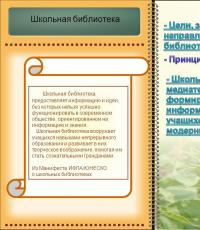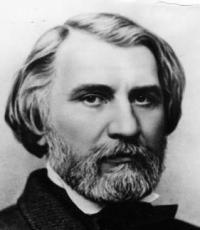Participle examples of words in Russian. Communion is the grace-filled communion of the soul with eternal life.
Participles have some grammatical features of a verb, noun and adjective.
Participles, as a special form of the verb, are of two types:
- perfect form - decided (from deciding), prompting (from inducing), excited (from agitating);
- imperfect type - falling asleep (from falling asleep), worried (from worrying).
Participles have two tenses:
- past - decided (one who dared), excited (one who was excited);
- present - falling asleep (one who falls asleep), worried (one who is worried).
Participles do not have the form of the future tense.
Participles are:
- returnable - with the suffix -sya (decided, rushing),
irrevocable - without the suffix -sya (prompted, built); - real - reflect the sign of an object or object as the initiator of an action, that is, those who "act" (a dared swimmer - who decided, a prompting reason - which prompted);
passive - reflect the sign of an object or object as a performer of an action that "suffer" and perform an action on the initiative of another (agitated sea - which was agitated by the wind, I am agitated - who is worried about memories).
Like nouns and adjectives, participles change by case, number, gender. At participles:
- Cases - nominative, genitive, dative, accusative, instrumental, prepositional (awakened day, awakened day, awakened day, etc.);
- Numbers - singular and plural (falling asleep child, falling asleep children);
- Gender - male, female, middle (boiling stream, boiling water, boiling milk).
The case, number, gender of participles is determined by the case, number, gender of the noun with which the participle corresponds (under a waving flag - the noun has a flag and the participle has a waving singular, masculine, instrumental case). Full participles are declined like adjectives.
Some participles, like adjectives, have two forms:
- Full form - flooded, covered,
- Short form - flooded, covered.
The initial participle form is the nominative singular masculine. Morphological features of participles are correlated with the indefinite form of the verb, it is used to determine transitivity or intransitivity, perfect or imperfect form.
Participle examples
Here are some examples of sentences with participles. Participles are highlighted in color.
The painting, drawn by a fifth grade student, was exhibited at a citywide competition. The sailors did not dare to go into agitated stormy sea. He noticed a friend climbing the stairs to the second floor.
By numbers
My work of many years is over.
All preparations were completed.
By forms
The boat was exactly glued to the black water, densely decorated with yellow leaves (M. Gorky).
The chest of his starched shirt was decorated with a devilishly colorful tie (M. Gorky).
Starched, decorated - passive participles in full form. Glued, decorated - passive participles in short form.
By the times
Examples of passive and active participles at different times from the works of M. Lermontov:
Valid Present Tense:
Suddenly, a shadow flickered across the bright strip that crossed the floor.
Valid past tense:
In the passage she knocked over a teapot and a candle that stood on the floor.
Passive present tense:
An oak leaf broke away from a native branch and rolled off into the steppe, driven by a cruel storm.
Passive past tense:
Mashuk's head was smoking like an extinguished torch.
Syntactic role
The participle in full form in the sentence acts as a definition.
The resting trees silently and obediently dropped their yellow leaves (A. Kuprin).
On the dried-up compressed fields, on their prickly yellow bristles, an autumn cobweb shone with a mica sheen (A. Kuprin).
Participles in short form appear in the sentence only as the nominal part of the compound predicate.
Long earrings are hung like bells along the branches (E. Maksimov).
The glow of sunset embraces the distance of heaven (S. Nadson).
Russian language is rich large quantity various parts of speech that help to build a competent and logical text. But it is impossible to imagine our native speech without participles, forms of the verb, which contain both its features, and adjectives. Participles are a synthesized part of speech that has a large number of expressive possibilities and can perform different functions in a sentence. It must be studied in the course of the school curriculum.
in participles
First of all, it is necessary to give a definition. The participle is called a verb form that combines the features of an adjective and a verb and answers the questions what? which? The participle characterizes the action and its sign at the same time. So you can briefly explain what the words related to this part of speech are - this is leading, screaming, knowing, becoming, living, readable and many others.
Since the participle is inseparable from the adjective, they have some common features. So, participles can change in numbers, gender and cases. It is important to note that both brief and full participles. Examples of words that have these features, bringing them closer to adjectives: dreaming - dreaming (change by gender), recognizing - recognizing (singular and plural), composed - composed - composed (change by cases: nominative, genitive and dative, respectively).
Signs of a verb in a participle
Since the participle is one of the forms of the verb, these two parts of speech are closely related and have a set of common features. Among them, one should note the appearance (perfect - said, imperfect - speaking), recurrence and irrevocable (laughing, removed), pledge (passive - prepared, real - aging). Transitivity and intransitivity is another sign that characterizes the sacrament. Examples of words that are transitive are cleaning (room), reading (newspaper), intransitive - downtrodden, inspired.

A special point is the presence of participles of time. It must be remembered that this part of speech has only the past and present tenses. Participles do not have a future tense form.
Valid participles
This group of participles names the action that the object itself performs. But what is it in practice Examples of words this category- frightening, whispering, lived, screaming, flying, etc.
In a sentence, the real participle describes an action that develops simultaneously with the one that names the predicate (for example: Mother is watching a child play).

Special situation with real past participles. What action describes a particular participle can be judged after determining from which it is formed. So, if the real participle is formed with the help of the corresponding suffixes from the perfect verb, then the action occurred before the other, called the verb. For example, there is a student in the class who has solved a test. The participle is formed from the verb "decide" (what to do?) - the perfect form. There is a student in the class doing a test. In this case, the sentence uses the imperfect participle.
Passive participles
Another variation of this part of speech is the passive participle. Examples of words that fall into this category might be: created, purchased, dressed, built in, driven, etc.
This type of participle describes an action that is performed on an object. In turn, the process that calls the participle can occur both simultaneously with what the predicate is talking about, and end earlier, nevertheless have a connection with the present moment.
Very often, both in speech and in literature, one can find a passive participle with a dependent word. Examples of such phrases: a work written by a composer, a music track listened to by a music lover, etc.
Connection with other parts of speech
The participle can be transformed into other parts of speech under the influence of various processes that contribute to the development of the Russian language. So, the participle can be substantiated into a noun (it is necessary to pay attention to such words as commander, future, which answer questions who? and what?).

Another important concept is the adjectivized participle. Examples of words that have been affected by this process are fried, mature, intimate, innate, etc. A completely logical question arises: how to distinguish a participle from an adjective in each specific case? One of the main signs that will help separate these parts of speech is to find a participle with a dependent word. Examples of such words: potatoes fried in a pan, an act of resentment, etc.
Parsing participles in the topic "Morphology"
In the course of studying each part of speech, both in the school curriculum and in the curriculum of any philological faculty, there are tasks for parsing a particular word in a sentence. To do this, it is necessary to determine the part of speech to which this lexical unit belongs, and correctly perform the analysis. So, let's try to parse the sacrament. How to determine that the word is a representative of this particular part of speech? You just need to know the typical participle suffixes. Examples of words containing suffixes -usch-, -yushch (participating, thirsty), -ash-, -yash- (hurrying, sleeping), -vsh- (becoming), -t- (deceived), -enn-, -nn - (built-in, recognized), -om-, -em- (adored, led), - all these are participles, real and passive, past or present tense.

So, parsing the participle consists of substituting a question for it (most often which one?), identifying it as a participle, indicating the initial form of the masculine gender, the singular in the nominative case, defining the verb and the suffix with which it is formed from it. It is also obligatory to indicate the type, the presence of recurrence and transitivity, pledge, tense, form (short or full), gender, number, case and declension, in this particular sentence.
The Russian language is rich in a large number of different parts of speech, which help to build a competent and logical text. But it is impossible to imagine our native speech without participles, forms of the verb, which contain both its features, and adjectives. Participles are a synthesized part of speech that has a large number of expressive possibilities and can perform different functions in a sentence. It must be studied in the course of the school curriculum.
First of all, it is necessary to define the participle as a part of speech. A participle is a verb form that combines the features of an adjective and a verb and answers the questions what? which? The participle characterizes the action and its sign at the same time. So briefly you can explain what the sacrament is. Examples of words related to this part of speech are leading, shouting, knowing, becoming, living, reading, and many others.
Since the participle is inseparable from the adjective, they have some common features. So, participles can change in numbers, gender and cases. It is important to note that both short and full participles have these features. Examples of words that have these features, bringing them closer to adjectives: dreaming - dreaming (change by gender), recognizing - recognizing (singular and plural), composed - composed - composed (change by cases: nominative, genitive and dative, respectively).
Signs of a verb in a participle
Since the participle is one of the forms of the verb, these two parts of speech are closely related and have a set of common features. Among them, one should note the appearance (perfect - said, imperfect - speaking), recurrence and irreversibility (laughing, removed), pledge (passive - prepared, real - aging). Transitivity and intransitivity is another sign that characterizes the sacrament. Examples of words that are transitive are cleaning (room), reading (newspaper), intransitive - downtrodden, inspired.

A special point is the presence of participles of time. It must be remembered that this part of speech has only the past and present tenses. Participles do not have a future tense form.
Valid participles
This group of participles names the action that the object itself performs. But what is real communion in practice? Examples of words of this category are frightening, whispering, lived, screaming, flying, etc.
In a sentence, the real participle describes an action that develops simultaneously with the one that names the predicate (for example: Mother is watching a child play).

Special situation with real past participles. What action describes a particular participle can be judged after determining the type of verb from which it is formed. So, if the real participle is formed with the help of the corresponding suffixes from the perfect verb, then the action occurred before the other, called the verb. For example, there is a student in the class who has solved a test. The participle is formed from the verb "decide" (what to do?) - the perfect form. There is a student in the class doing a test. In this case, the sentence uses the imperfect participle.
Passive participles
Another variation of this part of speech is the passive participle. Examples of words that fall into this category might be: created, purchased, dressed, built in, driven, etc.
This type of participle describes an action that is performed on an object. In turn, the process that calls the participle can occur both simultaneously with what the predicate is talking about, and end earlier, nevertheless have a connection with the present moment.
Very often, both in speech and in literature, one can find a passive participle with a dependent word. Examples of such phrases: a work written by a composer, a music track listened to by a music lover, etc.
Connection with other parts of speech
The participle can be transformed into other parts of speech under the influence of various processes that contribute to the development of the Russian language. So, the participle can be substantiated into a noun (it is necessary to pay attention to such words as commander, future, which answer questions who? and what?).

Another important concept is the adjectivized participle. Examples of words that have been affected by this process are fried, mature, intimate, natural, etc. A completely logical question arises: how to distinguish a participle from an adjective in each specific case? One of the main signs that will help to separate these parts of speech is to find a participle with a dependent word. Examples of such words: potatoes fried in a pan, an act of resentment, etc.
Parsing participles in the topic "Morphology"
In the course of studying each part of speech, both in the school curriculum and in the curriculum of any philological faculty, there are tasks for parsing a particular word in a sentence. To do this, it is necessary to determine the part of speech to which this lexical unit belongs, and correctly perform the analysis. So, let's try to parse the sacrament. How to determine that the word is a representative of this particular part of speech? You just need to know the typical participle suffixes. Examples of words containing suffixes -usch-, -yushch (participating, thirsty), -ash-, -yash- (hurrying, sleeping), -vsh- (becoming), -t- (deceived), -enn-, -nn - (built-in, recognized), -om-, -em- (adored, led), - all these are participles, real and passive, past or present tense.

So, parsing the participle consists of substituting a question for it (most often which one?), identifying it as a participle, indicating the initial form of the masculine gender, the singular in the nominative case, defining the verb and the suffix with which it is formed from it. It is also obligatory to indicate the type, the presence of recurrence and transitivity, pledge, tense, form (short or full), gender, number, case and declension, syntactic role in this particular offer.
μετοχή ) - an independent part of speech, or (depending on the point of view) a special form of the verb, which has the properties of both a verb and an adjective. Indicates a sign of an object by action and answers questions what?, what?, what does he do?, what did he do?, what did he do? The verb signs of the participle are the category of aspect, pledge, as well as a special predicative form of time. The adjectival (associated with the adjective) signs of the participle are the categories of gender, number and case, the possibility of forming short forms in passive participles, the syntactic function of an agreed definition. In addition, participles tend to turn into adjectives: brilliant fire - brilliant performance.The participle is used in many Indo-European languages, Arabic, Hungarian, and also in many Eskimo languages (for example, in Sireniki). In other languages, together with the gerund, it forms a special part of speech - English. Participle, German Partizip.
In russian language
The question of the status of participles has been and is being resolved ambiguously in Russian studies, however, linguists agree that participles are formed from a verb. The formation of participles is closely related to the category of aspect and transitivity. For example, present and past participles can be formed from imperfective verbs, and only past participles can be formed from perfective verbs. In addition, passive participles can only be formed from transitive verbs. The present participles are formed from the stem of the present tense. Active voice forms are formed using suffixes -usch- growing) and -ash- holding). Passive forms of the present tense are formed with the help of suffixes -om- , -eat- for verbs of the first conjugation ( slave) and -them- - for verbs of the second conjugation ( persecuted).
Past participles are formed from the stem of the infinitive. Active participles are formed with the suffix -vsh- for verbs whose stem ends in a vowel ( holding). With a suffix -w- such participles are formed from verbs with a stem into a consonant ( growing up).
Some verbs have specificity in the formation of participles, such verbs include verbs in -st , during the formation of which the original basis is truncated ( shrunken). From verbs with suffix -well- it is possible to form two forms of participles, for example, extinguished - extinguished.
Passive past participles are formed using suffixes -nn- (from verbs in -at : read, Lost), -enn- (from verbs in -it and -whose : baked), -t- (from monosyllabic verbs: crumpled).
Passive participles, as a rule, have complete ( verified) and short ( verified) forms. Short forms vary by gender and number. However, not all passive participles of the present tense have a short form. Since the passive participles of the present tense ( slave, readable) refer mainly to book speech, there are some stylistic restrictions on the formation of such forms. Therefore, from colloquial and some neutral verbs (for example, beat, cover, feed and so on) passive participles of the present tense are often not formed. Also, not all verbs form passive past participles in Russian.
Adjectivation
Adjectivation the transition of various parts of speech into an adjective is called, but it is participles that undergo adjectivation to a greater extent. When adjectivized, participles lose their verbal categories and begin to designate a permanent, static, unchanging feature, thus, participles are rethought. Allocate:
- participles that have turned into adjectives with a figurative meaning ( brilliant career);
- participles that have turned into adjectives with new, additional meanings ( thinking being);
- participles that have turned into adjectives with a designation of purpose for performing some action ( typewriter);
- participles that have turned into adjectives with the meaning of the ability to be exposed to any effect ( inflected nouns);
- participles that have turned into adjectives with the meaning of a state caused as a result of some action ( condensed milk).
Grammar signs
The participle changes according to the features of the adjective. It changes by numbers, by cases, by gender in the singular. The participle can be perfective and imperfective, past and present; these signs do not change; for the sacrament they are constant.
Examples of a valid participle
- Rain, watering earth.
- Horror, flying on the wings of the night.
- Man, having read book.
- Fallen leaves from the tree.
- Birch, declining over wet bushes.
Examples of the passive participle
- Earth, watered rain.
- Plant, cultivated in the garden.
- Book, read everyone.
Perfect
The short form of the passive past participle of perfective verbs is used in Russian to form passive forms of the perfect: book read(present perfect) the house was built(past perfect) the road will be laid(perfect future tense).
Subjunctive participle
The question of the existence in the Russian language of the participle of the subjunctive mood, formed by adding a particle to the real participle of the past tense would, is debatable. However, similar forms are sometimes found in the works of N.V. Gogol, and in the form of a stable turnover would do honor- many other authors.
Participial
The participle with dependent words is called participle turnover. In the sentence, participial turnover and participle are a separate or non-separate agreed definition.
In Russian, the participial turnover is often separated by commas. If the participial turnover is after the word being defined, it is separated by commas on both sides. When the participial turnover is in front of the word being defined, commas are not put, except when the word being defined is expressed by a personal pronoun.
- Program, hastily written, performed an invalid operation.
- Hastily written The program performed an illegal operation.
Complex sentences can be overloaded with participial phrases:
- Woodpecker, gouging wood, growing in the forest, bombarded snow, falling from the branches, very frozen.
Participle- part of speech, which is a special form of the verb, which denotes signs of action. Answers questions such as “what?”, “what?”, “what?”, “what?”.
As a verb form, participles have the following grammatical features:
- Type: perfect and imperfect (for example: evening (what?) slumbering(what to do? - doze off); jumping cat(what to do? - jump off);
- Time: present and past (grandfather (what?) Dozing, cat (what?) Escaped);
- Returnability: returnable and non-refundable.
Morphological and syntactic signs of participles
There are scientists who believe that the participle is an independent part of speech, because it has features that are not characteristic of the verb. In particular, participles have some of the characteristics of adjectives, such as
- object attribute designation
- and agreement with the noun (that is, the same gender, number, and case).
Participles are real and passive, some have full and short forms. The short form of the participle in the sentence plays the role of the nominal part of the compound predicates. For example: Textbook disclosed on the tenth page.
Participles are able to decline in cases, numbers and gender, like adjectives. Even though participles have verb features, in a sentence they are definitions. For example: The book is lost, the briefcase is lost, the panel is lost.
Participles have an initial form, but only participles that are formed from imperfective verbs have it. Participles real and passive are formed with the help of suffixes.
Types of participles and their examples.
Passive participles.
Passive participles- these are the participles that denote a sign that is created in one object under the action of another. Passive participles are formed only from transitive verbs. For example: A picture (what?) Drawn or drawn by a student.
They are formed from the stems of the verb in the present and past tenses with the help of suffixes:
- -om- (-em-) - for verbs of I conjugation
- -im- for verbs of II conjugation
- -nn-, -enn-, -t- – from the stems of verbs in the past tense
Examples: read, carried, kindled, divided, heard, sown, broken, baked. trimmed, beaten, split
Real participles.
Real Communion- this is a participle, which denotes a sign produced by the subject / object itself. For example: Boy painting a picture.
Real participles are formed from verbs in the present and past tenses with the help of suffixes





